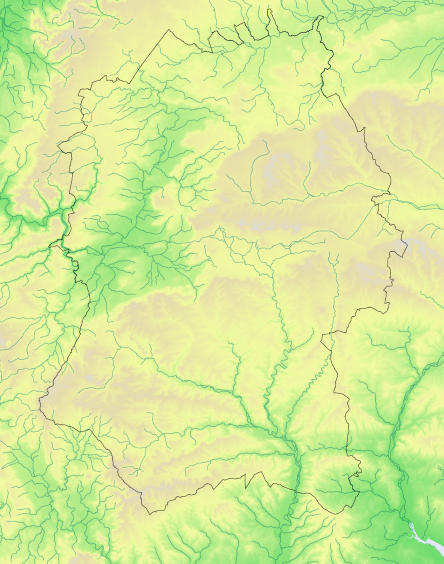Treecreeper Certhia familiaris
Breeding distribution change
Common but overlooked resident of woodland and wooded gardens
Atlas species lists
- Breeding distribution 1995–2000
- Summer abundance 1995–2000
- Winter distribution 1995–2000
- Winter abundance 1995–2000
- Breeding distribution 2007–2012
- Summer abundance 2007–2012
- Winter distribution 2007–2012
- Winter abundance 2007–2012
- Breeding distribution change
- Summer abundance change
- Winter distribution change
- Winter abundance change
More Treecreeper maps
- Breeding distribution 1995–2000
- Summer abundance 1995–2000
- Winter distribution 1995–2000
- Winter abundance 1995–2000
- Breeding distribution 2007–2012
- Summer abundance 2007–2012
- Winter distribution 2007–2012
- Winter abundance 2007–2012
- Breeding distribution change
- Summer abundance change
- Winter distribution change
- Winter abundance change
More maps for this atlas
Map explanation
This map shows where changes occurred in the breeding season distribution of the species in Wiltshire between 1995-2000 and 2007-2012, as revealed by the fieldwork for Birds of Wiltshire (Wiltshire Ornithological Society 2007) and the shared fieldwork for Bird Atlas 2007-2011 (BTO 2013) and for Wiltshire Tetrad Atlas 2007-2012.
Gains and improvements
Status
Nos tetrads

Absent to present
68
7%

Present to breeding
44
5%

Absent to breeding
59
6%
No change
Status
Nos tetrads

Present in both
54
6%

Breeding in both
40
4%
Losses and declines
Status
Nos tetrads

Present to absent
114
12%

Breeding to present
50
5%

Breeding to absent
69
8%
Treecreepers are found in temperate and boreal woodland in an area stretching from parts of western Europe (they are absent from much of Iberia, France, Italy and the Low Countries) right across north-central Eurasia to Sakhalin and Japan, south to northeast China and the northern Himalayas, Iran and Turkey.
In Britain they are absent only from the Northern Isles of Scotland, most of the Outer Hebrides, the highest peaks in mainland Scotland and the English fens. Bird Atlas 2007-2011 recorded a 5% range contraction since the 1968-72 Breeding Atlas, mostly in Cornwall and eastern England. They are very susceptible to cold weather and their numbers drop significantly after harsh winters such as those of 1928/29, 1946/47, 1962/63 and 1978/79, but bounce back quickly when milder weather returns. This causes fluctuations in their abundance from year to year but overall their numbers are stable.
Treecreepers were reported to be common in Wiltshire in the 19th century and all of the national atlases published in the 20th century reported them as being present in at least 31of Wiltshire's 33 core 10km squares. Birds of Wiltshire recorded them in 371 tetrads, with breeding in 150. WTA2 recorded them in 315 tetrads with breeding in 143.
References
The following references are used throughout these species’ accounts, in the abbreviated form given in quotation marks:
“1968-72 Breeding Atlas” – Sharrack, J.T.R. 1976: The Atlas of Breeding Birds in Britain and Ireland. T. & A. Poyser
“1981-84 Winter Atlas” – Lack, P.C. 1986: The Atlas of Wintering Birds in Britain and Ireland. T. & A. Poyser
“1988-91 Breeding Atlas” – Gibbons, D.W., Reid, J.B. & Chapman, R.A. 1993: The New Atlas of Breeding Birds in Britain and Ireland 1988-91. T. & A. Poyser
“Birds of Wiltshire” – Ferguson-Lees, I.J. et al. 2007: Birds of Wiltshire, published by the tetrad atlas group of the Wiltshire Ornithological Society after mapping fieldwork 1995-2000. Wiltshire Ornithological Society.
“Bird Atlas 2007-2011”-– Balmer, D.E., Gillings, S., Caffrey, B.J., Swann, R.L., Downie, I.S. and Fuller, R.J. 2013: The Breeding and Wintering Birds of Britain and Ireland. BTO Books.
“WTA2” – ("Wiltshire Tetrad Atlas 2 ") the present electronic publication, bringing together the Wiltshire data from “Birds of Wiltshire” and “Bird Atlas 2007-11”, together with data from further fieldwork carried out in 2011 and 2012.
"Hobby" - the annual bird report of the Wiltshire Ornithological Society.

